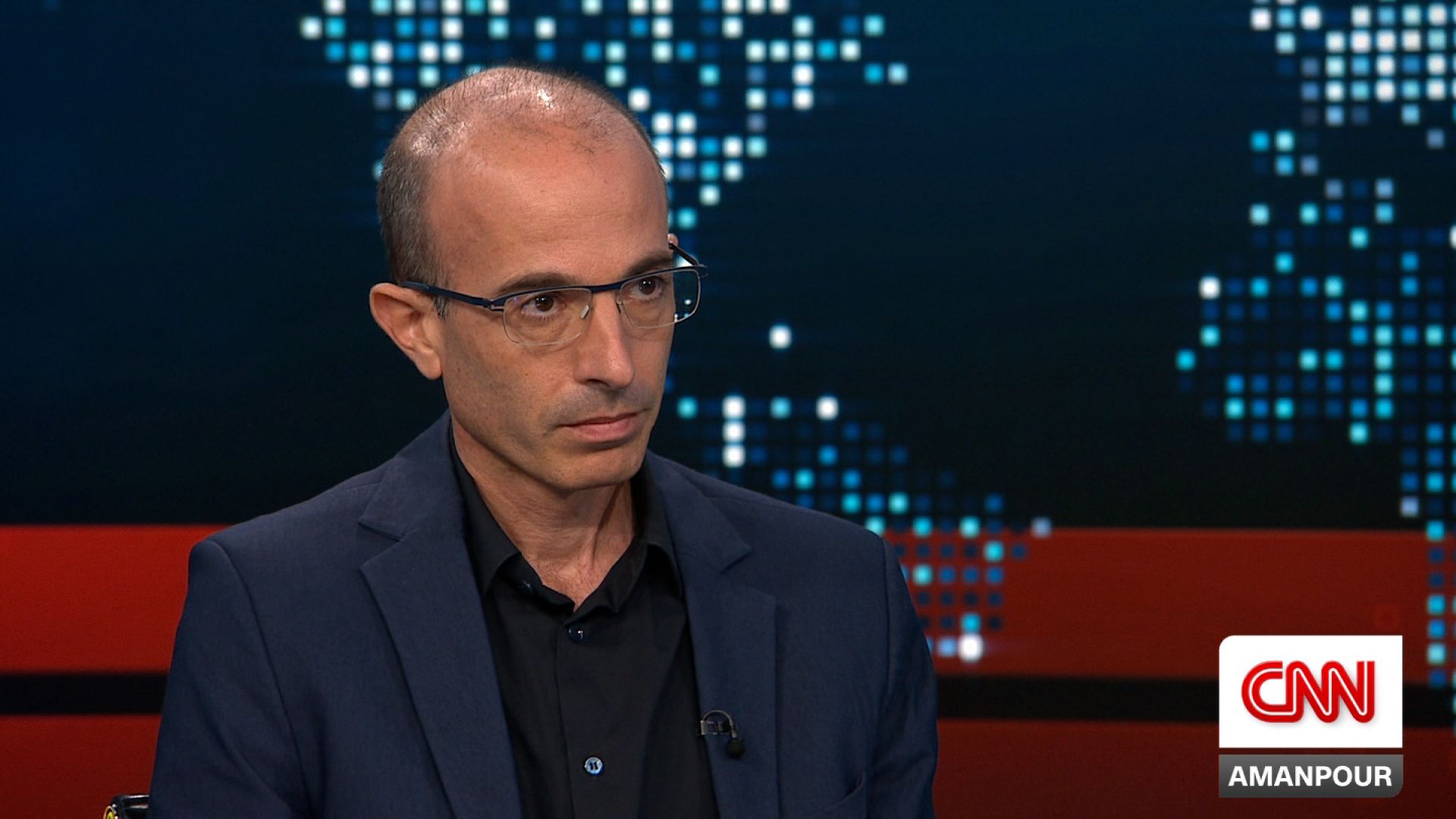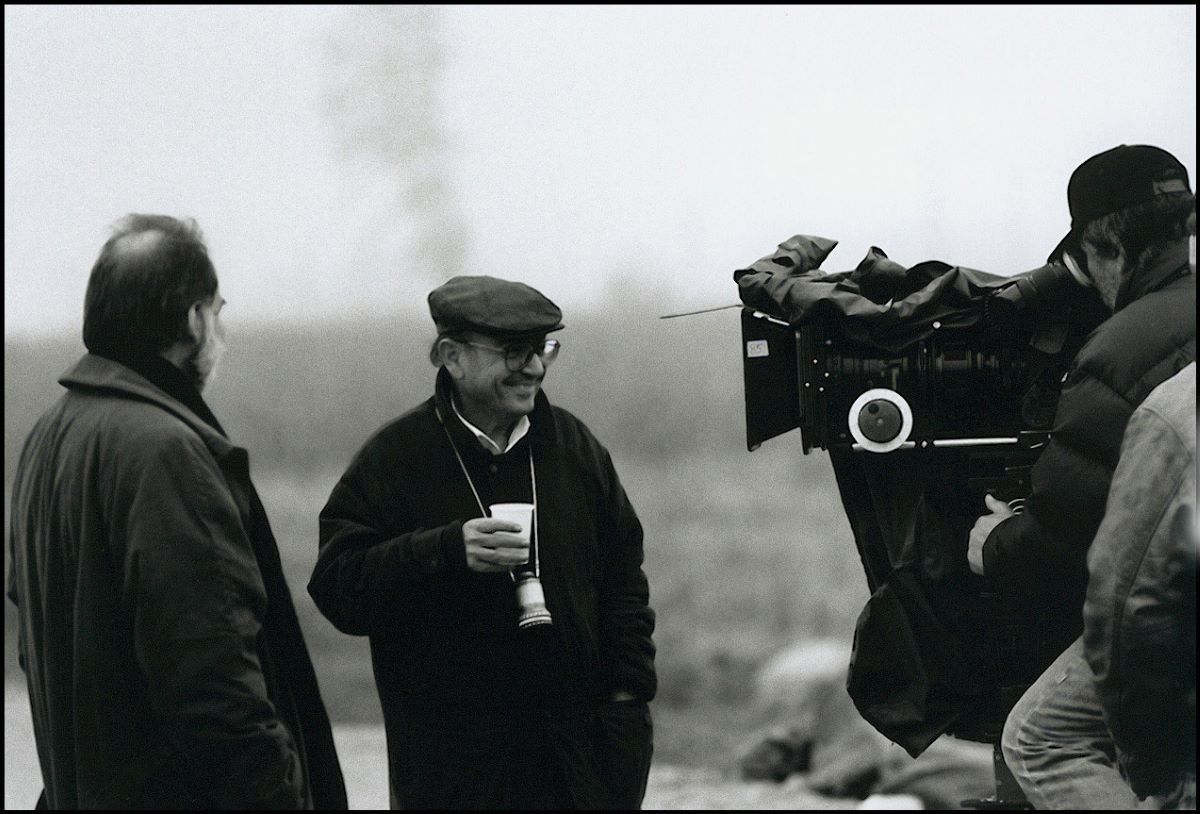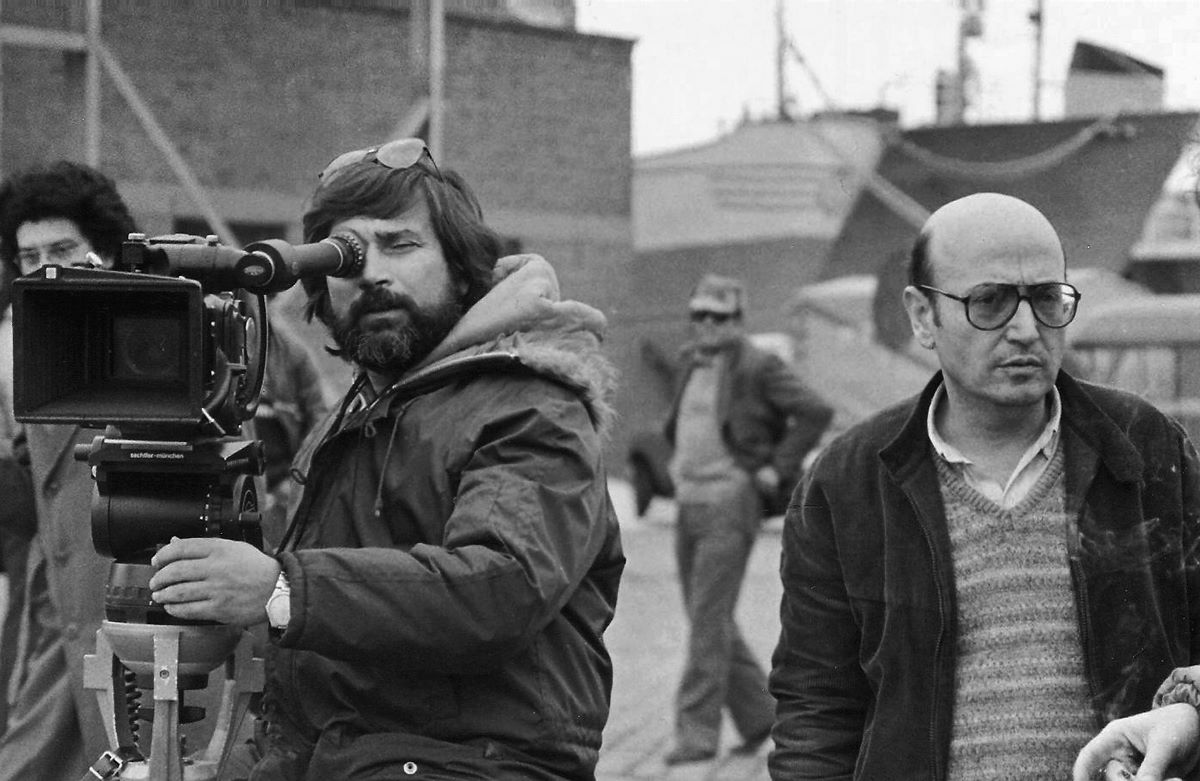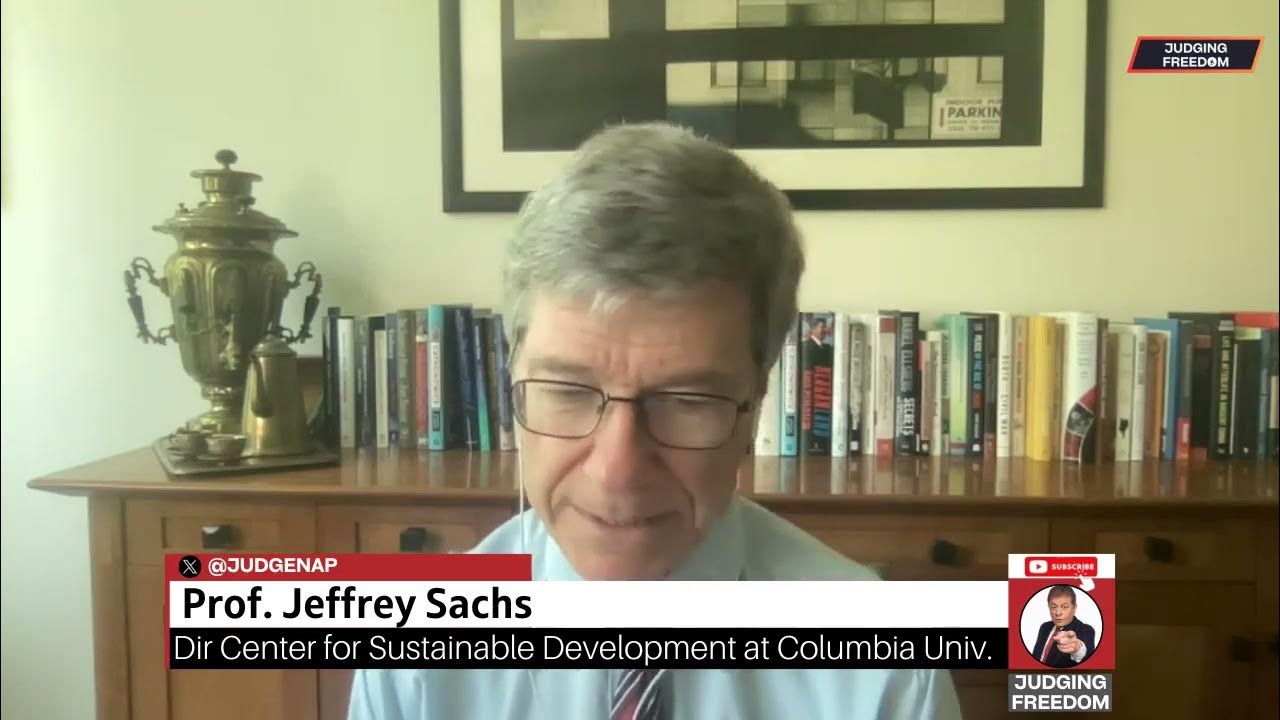Christiane Amanpour’s interview with Yuval Noah Harari, exploring the long-term implications of Hamas’ attack on Israel and the subsequent retaliation in Gaza. Broadcast live on CNN International on October 12, 2023.
AMANPOUR: Questions are being asked about the ramifications of this crisis and how the region got here in the first place and where it is going to end up. So let’s get some perspective now. Yuval Noah Harari is a historian and a public intellectual, best-selling author behind books like Sapiens, and he joins me now here in London. Welcome back to our program.
HARARI: Thank you, Christiane.
AMANPOUR: When this all happened, Israelis were saying and the world was saying: oh my gosh, look at this date October 7th, almost exactly 50 years since Yom Kippur. And they thought maybe that was the context in which to look at it. But it’s not like that anymore, is it?
HARARI: Oh, in Israel now everybody’s talking in terms of comparisons with the Holocaust, comparisons with pogroms, waged for centuries against Jews. Because what happened is that entire communities were slaughtered, systematically. It was not a attack on military units or military bases. It was an attack aimed to simply annihilate entire communities. My aunt and uncle live in one of these communities, Kibbutz Be’eri. They hid themselves in their house as terrorists just went… the Hamas took over the entire village and just for hours moved systematically from house to house, slaughtering family after family. My uncle, who is 99 years old, and my aunt, 89 years old, they hid themselves in their house and they somehow survived. But many of my friends and family, they just received the worst news of their lives. And there is shock in Israel about the inability of the army to reach these villages in time. But again, the memories — they go back to the Holocaust and to the pogroms. And the other thing which is really shocking and really changes the whole perspective — because we’ve been through these rounds of violence every two or three years — but the feeling is that this is completely different now. That the terrorists, they not only went after civilians, but they murdered them and tortured them deliberately in just the worst possible ways they could imagine, ISIS style. I mean decapitations, killing parents in front of the children… And the third thing is, they didn’t try to hide the atrocities. They deliberately wanted people to see the atrocities, even down to filming them and posting them online on social media. And you ask yourself: why would they do that? And the impression is they just wanted to… it’s psychological warfare. Again, ISIS style — aimed not only only to spread terror, but to sow seeds of hatred that will ensure that this terrible conflict will go on for generations. You know, part of the background is the approach for a deal between Israel and Saudi Arabia — a peace agreement that should have included also some improvement in the situation of the Palestinians. And this is the background to this attack. And Hamas, since its foundation, never accepted the existence of Israel and never accepted any attempt at peace. The aim was not just to destroy Jewish communities, but to assassinate any chance for peace.
AMANPOUR: And so many children as well, as you mentioned, were slaughtered, and there are even children who’ve been taken hostage, we understand, and are in Gaza. Can I ask you — because you are a really thoughtful person, and your whole career and your public intellectualism is based on complex thoughts. Is there a moral maze? Is there an ability to hold two thoughts at one time? That that slaughter is the worst thing that could have happened, and that everybody has the right to live with rights and dignity — including the Palestinian people? And I am not not talking about Hamas, I am talking about the legitimate aspirations of the Palestinian people for 75 years and 56 under occupation.
HARARI: Yes, again, this is the big challenge. That it should be possible to understand that you can be victim and perpetrator at the same time. That this is what happens to most people in history — most nations in history, they are sometimes victims they are sometimes perpetrators, they are sometimes both at the same time. But this is a kind of complexity that especially… again, when you stand thousands of kilometers from the conflict, you can see it. But for the people on the ground, it is impossible. It is just psychologically impossible.
AMANPOUR: Now or ever?
HARARI: Hopefully… again, I’m talking about Hamas trying to sow these seeds of hatred. Hopefully, we can sow seeds that will not give any fruit right now, but may give fruit in decades, and make it possible to reconcile. You know, starting with the release of all the hostages. And it is possible for these reconciliations to happen in history. We remember only the atrocities. I just heard you talking about the Balkans and the and the wars in the former Yugoslavia in the 1990s. Everybody remembers the wars in Yugoslavia in the 1990s. They don’t remember the wars between Poland, Lithuania and Ukraine in the 1990s. Why not? Because it didn’t happen. The history of relations between Poles and Lithuanians and Ukrainians is, was as bad as between Serbs and Croats and Bosnians previously. During the 1940s, there were slaughters and deportations of hundreds of thousands on both sides. And what happened at the same time of the wars in Yugoslavia, is that the Polish government that… you know, Poland has a historical claim to Vilnius, which was a Polish city, now the capital of Lithuania, to Lviv, now in Ukraine, previously an important Polish city in Poland. And there was a conscious decision of the Poles in the early 1990s, that history is history: we look to the future. And they told: we don’t want this back, we want to build a future together.
AMANPOUR: And now Ukraine and Poland and Lithuania are fighting for the survival of democracy for Ukraine, and for everyone. So you have written a piece, a column for the Washington Post, in the aftermath of what happened on Saturday. And you’ve talked about the survivability of democracy, including in your own country, and that what happens is important for the rest of the world. And you did say — and I’m going to see if I can actually find it — ‘How did this happen? How did the state of Israel go missing in action? On one level Israelis are paying the price for years of hubris, during which our governments and many ordinary Israelis felt we were so much stronger than the Palestinians that we could just ignore them.’ Etcetera. But then — and of course you said this does not justify any atrocities — but you also say that it’s the peril of populism even in your own country.
HARARI: Yes, I mean, I’ve heard the government spokesperson talks about, you know, the military, the intelligence… Yes, obviously this has to be looked into. But it’s very clear I think to most Israelis, that this goes way deeper and longer. That we have had a strongman populist leader, Benjamin Netanyahu, who built his career on dividing the nation against itself for years, on attacking state institutions that opposed his policies, on spreading conspiracy theories and labeling the serving elites of the country as deep-state traitors. And this, over many years, corroded the basic institutions of the state. And this is why, now, the state has been missing in the hour of greatest need of the citizens. And this is something that… people in democracies all over the world should learn the lessons from our tragedy in this sense. That if you allow your country to be divided against itself to such a degree, there could be a very very high price to pay for it.
AMANPOUR: And there is a very high price that’s been paid. I mean on the ground, inside Israel. Do you believe then that this same leader — and I asked this to Mark Regev as well, his senior advisor — can actually… You know, he spent all these years, as you say, dividing can actually unite them in order to go to victory, is what they say.
HARARI: The first step is simply to tell Israelis that he apologizes for what he has done in previous years, and taking responsibility. And I’m not a politician, I can’t tell you exactly how to do it, and what kind of new government to form — but on the most basic level… One of his ministers did it, the Minister of Education said we’ve been dealing with nonsense for the past year, and basically took some responsibility and apologized. And this is, you know… To move on, many Israelis we see, I mean… Government ministers, when they go visit hospitals, they are now being hounded by the citizens. And just say… I mean, don’t even resign, just start by saying: ‘We are sorry’. As simple as that.
AMANPOUR: Yuval Noah Harari, thank you so much for your perspective. Thank you for coming in.
HARARI: Thank you.





